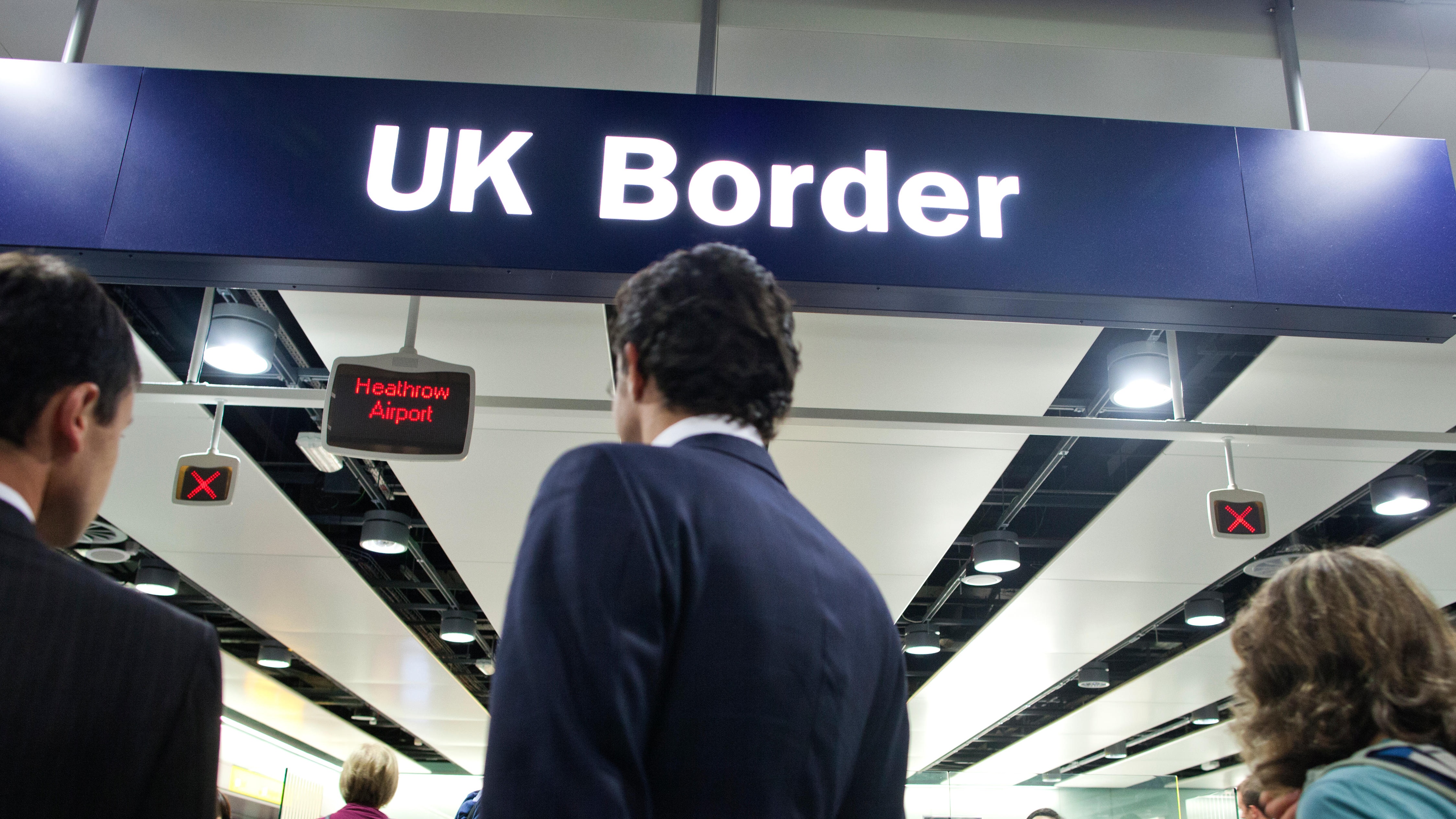The UK’s migration ‘surge’ examined
1.1 million people migrated to the UK last year, according to the latest ONS data

A free daily email with the biggest news stories of the day – and the best features from TheWeek.com
You are now subscribed
Your newsletter sign-up was successful
Migration to the UK has reached “the highest figure ever recorded”, said Allison Pearson in The Daily Telegraph. The Office for National Statistics estimates that, in the year to June, 1.1 million people legally migrated to the UK, while some 560,000 left, leaving total net migration at a record 504,000.
These figures are staggering; it is quite clear to “everyone but our complacent leaders” that immigration on this scale will impose vast and unsustainable pressure on Britain’s public services and housing; a grand total of 38,400 new houses were built in the UK last year. Half a million people, said the Daily Mail: that is equivalent to a city the size of Liverpool. Let us be clear: migrants make a huge contribution to British society. But “something has to give. No one voted for mass immigration on this scale.” In fact, the Conservatives promised clearly in their 2019 manifesto that “overall numbers will come down”.
The headline figures are “deceptive”, said Fraser Nelson in The Spectator. This year’s stats were very high because of a “surge” of Ukrainians and Hongkongers arriving via one-off humanitarian schemes. As was expected after Brexit, EU immigration shrank (the net figure actually turned negative). Non-EU migration grew, boosted by large numbers of students as Covid restrictions were lifted: more than 400,000 student visas were issued in the year to June.
The Week
Escape your echo chamber. Get the facts behind the news, plus analysis from multiple perspectives.

Sign up for The Week's Free Newsletters
From our morning news briefing to a weekly Good News Newsletter, get the best of The Week delivered directly to your inbox.
From our morning news briefing to a weekly Good News Newsletter, get the best of The Week delivered directly to your inbox.
A “confident, successful, open” country would celebrate this, said Ian Dunt in The i Paper. Foreign students contribute nearly £30bn per year to the British economy. After they graduate, most leave, and those who stay get jobs and become taxpayers. Successive governments have tried and failed to restrict immigration, said The Independent. But ultimately, Britain’s prosperity depends on workers from abroad: immigration is a sign of economic success; there is everything to gain from it. “It may be unpopular in some quarters, but it seems that net migration is set to remain at the average level of around 250,000 indefinitely.”
It’s not just unpopular in some quarters, said Eric Kaufmann on UnHerd: it’s very unpopular indeed. Attitudes have softened recently, but even so, nearly every poll shows that over 50% of voters want less immigration. Yet we are heading in the other direction, said Ed West on Substack. “The more migration you have, the harder it becomes to slow down.” Immigration is “path dependent”: if people migrate from country A to country B, it makes it much easier for others to follow them. And the more that overall migration numbers increase, the more businesses get used to the flow of cheap labour – and lobby for it to continue indefinitely.
All this represents a serious political headache for the Tories, said Stephen Bush in the FT. They keep promising – often using “highly charged” rhetoric – to bring immigration down. And they keep failing to do so. The politics of immigration, “once such a reliable source of electoral joy for the Tory party”, are turning “drastically against them”.
A free daily email with the biggest news stories of the day – and the best features from TheWeek.com
-
 The ‘ravenous’ demand for Cornish minerals
The ‘ravenous’ demand for Cornish mineralsUnder the Radar Growing need for critical minerals to power tech has intensified ‘appetite’ for lithium, which could be a ‘huge boon’ for local economy
-
 Why are election experts taking Trump’s midterm threats seriously?
Why are election experts taking Trump’s midterm threats seriously?IN THE SPOTLIGHT As the president muses about polling place deployments and a centralized electoral system aimed at one-party control, lawmakers are taking this administration at its word
-
 ‘Restaurateurs have become millionaires’
‘Restaurateurs have become millionaires’Instant Opinion Opinion, comment and editorials of the day
-
 Health insurance: Premiums soar as ACA subsidies end
Health insurance: Premiums soar as ACA subsidies endFeature 1.4 million people have dropped coverage
-
 Anthropic: AI triggers the ‘SaaSpocalypse’
Anthropic: AI triggers the ‘SaaSpocalypse’Feature A grim reaper for software services?
-
 Currencies: Why Trump wants a weak dollar
Currencies: Why Trump wants a weak dollarFeature The dollar has fallen 12% since Trump took office
-
 Elon Musk’s starry mega-merger
Elon Musk’s starry mega-mergerTalking Point SpaceX founder is promising investors a rocket trip to the future – and a sprawling conglomerate to boot
-
 TikTok: New owners, same risks
TikTok: New owners, same risksFeature What are Larry Ellison’s plans for TikTok US?
-
 Will SpaceX, OpenAI and Anthropic make 2026 the year of mega tech listings?
Will SpaceX, OpenAI and Anthropic make 2026 the year of mega tech listings?In Depth SpaceX float may come as soon as this year, and would be the largest IPO in history
-
 Leadership: A conspicuous silence from CEOs
Leadership: A conspicuous silence from CEOsFeature CEOs were more vocal during Trump’s first term
-
 Ryanair/SpaceX: could Musk really buy the airline?
Ryanair/SpaceX: could Musk really buy the airline?Talking Point Irish budget carrier has become embroiled in unlikely feud with the world’s wealthiest man